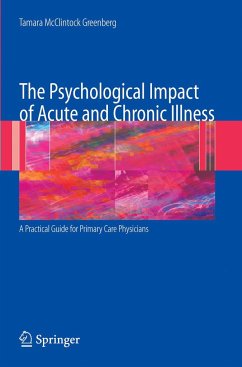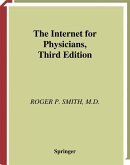This book helps primary care physicians navigate normative and non-normative psychological responses to illness, provides advice on coping responses and offers guidance on mental health referrals. Coverage includes responses to serious and potentially life-threatening illness, and offers case studies.
n the following pages, Dr. Greenberg delineates the complex forces at Iplay within patients who are newly ill or disabled, within physicians who do their best to guide patients through those debilities, and in the inter- tion that patient-physician dyads perform thousands of times daily to try to make sense of the patient's plight. As a physician and medical educator who thinks about how to enhance communication between patients and physicians, I often view commu- cation challenges as arising from divergent cultural experiences. Each patient has a unique method of experiencing, deriving meaning from, and coping with a new or chronic illness. This approach is necessarily filtered through the patient's family and social contexts and the patient's current living situation. Physicians, too, bring psychosocial upbringing and current social c- text into their clinical practice settings. We have also been inculcated into a medical culture that takes its bright, impressionable, idealistic young and shapes them, sometimes brutally, into diagnosticians and proceduralists. We are just now beginning to understand the many components of the "hidden curriculum" of many medical schools - unspoken but powerful influences in training that undercut the humanity of trainees and turn them into poorer communicators than when they first started.
Hinweis: Dieser Artikel kann nur an eine deutsche Lieferadresse ausgeliefert werden.
n the following pages, Dr. Greenberg delineates the complex forces at Iplay within patients who are newly ill or disabled, within physicians who do their best to guide patients through those debilities, and in the inter- tion that patient-physician dyads perform thousands of times daily to try to make sense of the patient's plight. As a physician and medical educator who thinks about how to enhance communication between patients and physicians, I often view commu- cation challenges as arising from divergent cultural experiences. Each patient has a unique method of experiencing, deriving meaning from, and coping with a new or chronic illness. This approach is necessarily filtered through the patient's family and social contexts and the patient's current living situation. Physicians, too, bring psychosocial upbringing and current social c- text into their clinical practice settings. We have also been inculcated into a medical culture that takes its bright, impressionable, idealistic young and shapes them, sometimes brutally, into diagnosticians and proceduralists. We are just now beginning to understand the many components of the "hidden curriculum" of many medical schools - unspoken but powerful influences in training that undercut the humanity of trainees and turn them into poorer communicators than when they first started.
Hinweis: Dieser Artikel kann nur an eine deutsche Lieferadresse ausgeliefert werden.








